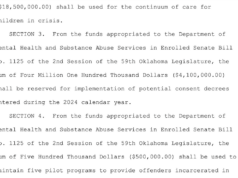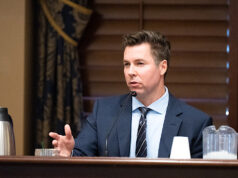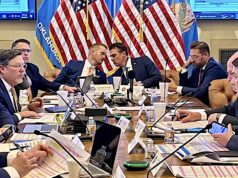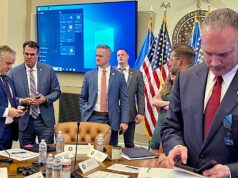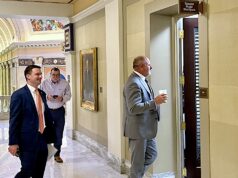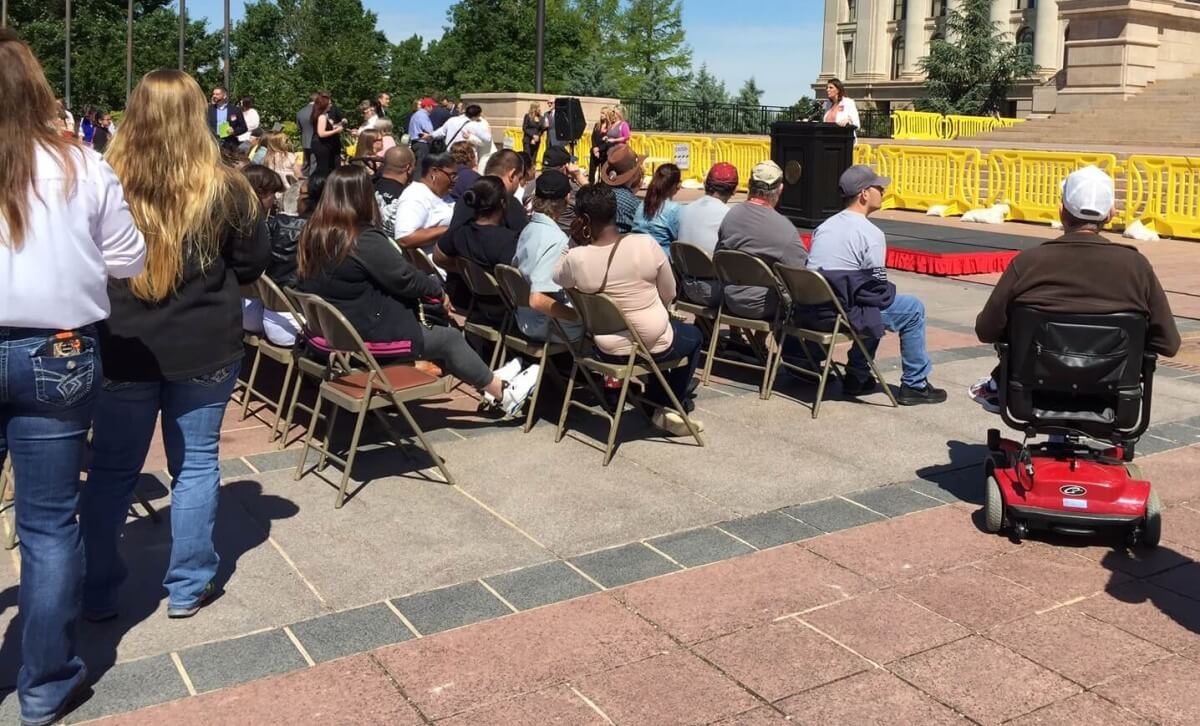
Hundreds gathered on the south lawn of the Oklahoma State Capitol on Tuesday to protest legislative cuts for SoonerCare, Oklahoma’s Medicaid program.
Because SoonerCare provides coverage for more than 800,000 low-income Oklahomans — including children — those who depend on Medicaid for health care organized the event, and they dubbed it Medicaid Matters.
For Erin Taylor, one of the event’s organizers, the issue is personal. Her son, Henry, was born with a congenital heart problem that required eight surgeries and a heart transplant. While recuperating from that, he sustained a dual-hemisphere brain injury. Without Medicaid, she said Tuesday, her family would pay $1,300 per month in pharmaceutical costs alone.
Taylor said she hopes to see a broad-based coalition emerge from the rally that will continue to carry its message to legislators.
“Our goal is to really impart to our legislators that Medicaid serves hundreds of thousands of vulnerable Oklahomans that rely on it for financial stability,” she said.
16,800 elders at risk under current proposals
Kimberly Green, of assisted-living company Diakonos Group, warned of dire consequences for Medicaid-provider cuts.
“Oklahoma has approximately 300 nursing facilities,” she said. “They have over 18,000 residents and employ over 17,000 caregivers. Over the past 10 years, the cost to provide care has increased dramatically, yet our reimbursement rates have been cut. We now lose $14 per day for every Medicaid resident. A 25 percent cut, which is on the table, would mean 93 percent of nursing homes would have to close their doors. That is 16,800 elders that would have nowhere to go.
“The right cut is zero percent,” said Green.
Ed Lake, director of the Department of Human Services, echoed Green’s data.
“The potential impacts of cuts to Medicaid programs and the people we all serve are so great,” Lake said while addressing the crowd. “The people we serve through the Department of Human Services are among the most vulnerable in Oklahoma, and many lives literally depend upon these services.”
Last month, Emergency Medical Services Authority CEO Steve Williamson presented an even more dire picture to the Tulsa City Council. Among other things, he warns of the closing of several rural hospitals, 80 percent of state hospitals abandoning obstetrics, and the closure of most of the state’s nursing homes. He urged the council to weigh in on the issue.
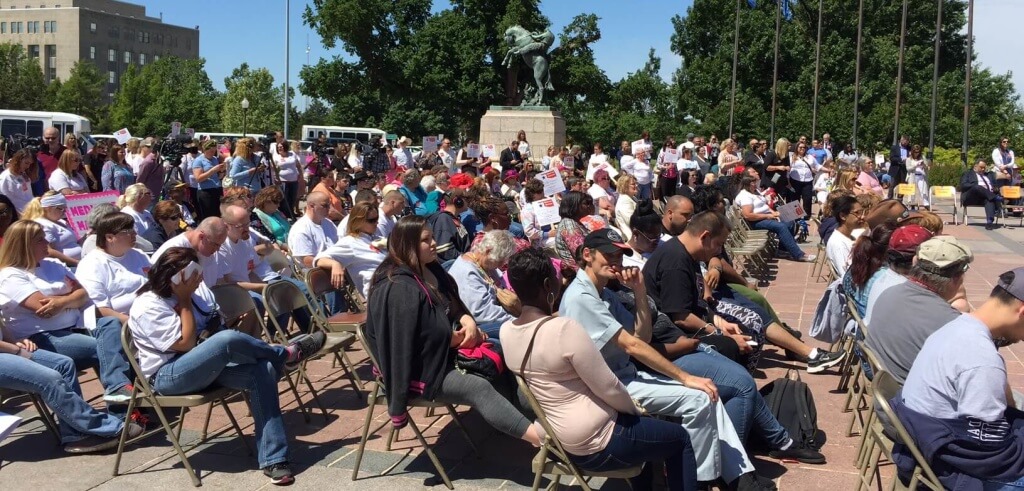
A plan for rebalancing
Oklahoma Health Care Authority (OHCA) CEO Nico Gomez has pitched the proposed Medicaid Rebalancing Act of 2020. The plan calls for an expansion of Insure Oklahoma, the state’s insurance program that covers low-income Oklahomans who make too much to qualify for Medicaid.
The cost, he asserts, would be roughly $100 million, with $900 million in matching federal money. The program, he said, could potentially save the state $60 million and reduce uninsured Oklahomans by 35 percent. The proposed act has already garnered significant support from legislators and health care providers.
“The bottom line is that we want to stabilize provider rates,” Gomez told the audience. “We want to insure the long-term stability of SoonerCare.”
Last year, Gomez warned the Senate that cuts to health care-provider reimbursement rates could put many providers out of business. The agency has cut more than $500 million from its budget since 2010. Provider rates could be cut by as much as 25 percent this year.
Education cuts compound health care issues
State lawmakers are concerned about cuts to education as well as health care. Next week, they’ll begin exploring options and hearing budget bills that will minimize the impact of such cuts. A number of options exist, including a hike in the cigarette tax to support the Medicaid Rebalancing proposal, expanding the sales tax and increasing the gas tax, among others.
“A zero-percent cut is not OK,” Rep. Jon Echols (R-OKC) told the crowd. “We’re working to give you $100 million because you’ve got to have it. It’s not enough, but we’re working on it.”
Health providers are not required to accept SoonerCare. As SoonerCare payments made to medical professionals shrink, many providers may simply opt out of the system, in turn reducing health care choices for the plan’s members. Health care providers have already spoken out against last year’s cuts to SoonerCare reimbursement.
Lawmakers receive special deliveries
After the rally, several attendees hand-delivered letters of concern to their local legislators.
Attendee Barbara Woodward, a resident of a Diakonos home for assisted living in Broken Arrow, said her medications cost roughly $4,400 a month without Medicaid.
“This is very distressing for me,” she said. “I can’t imagine staying where I am without Medicaid. This program could become a longer wait or a cancellation altogether.”











